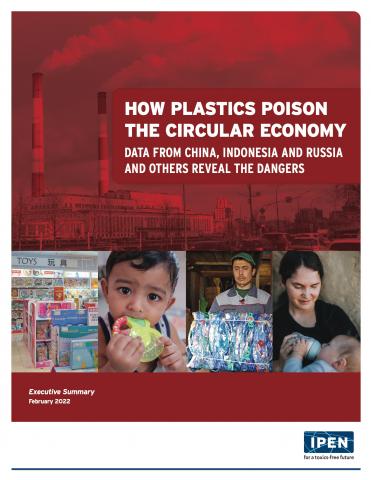
Gothenburg, Sweden As governments prepare to discuss a global instrument to tackle plastic pollution, IPEN has published a number of studies showing significant obstacles for countries seeking to implement safe plastic circular economies. The studies reveal that countries are unable to handle large volumes of diverse plastics waste streams safely, and the reality that, without regulations requiring plastic ingredients to be labeled, countries are blindly allowing known toxic chemicals onto their markets in plastic products.
IPEN says the problem will only get worse based on current forecasts of huge growth in plastic and chemical production and use. It calls for public policies to end the recycling of hazardous chemicals in plastics, that poison the circular economy and threaten human health. IPEN says that plastics producers have dodged their responsibilities by producing plastic materials with toxic chemicals and should be financially liable for any harm caused through the life cycle of plastics.
IPEN studies reveal toxic plastic waste issues in China, Indonesia and Russia
To better understand the risks associated with plastics and the circular economy, IPEN investigated the situation in three significant global economies – China, Indonesia and Russia. It analyzed:
